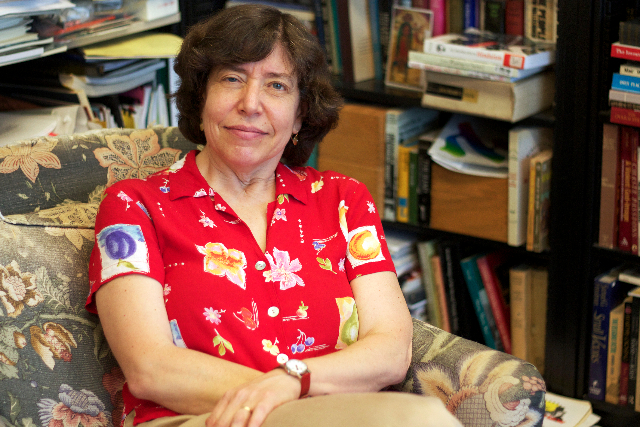UC Davis students get a lot of emails, and sometimes an opportunity can get lost in the shuffle. As it turns out, not all mail from faculty members is meant for the masses. Some, like an invitation to join Phi Beta Kappa (PBK), is only sent out to a select few. And to those that are eligible, it might benefit them to keep an eye out for it.
PBK is the United States’ oldest honor society and is considered the most prestigious, dating back almost as far as the founding of the country in the late 18th century. It recognizes outstanding academic success in multiple fields of study.
UC Davis contributes its fair share of students to the society every year: 140 on average according to the secretary of the Davis chapter, religious studies professor Naomi Janowitz. Several students this year are being elected to the society at a ceremony taking place on May 7, but a good number of eligible students won’t be showing up.
“One of the things that’s interesting about Davis is the number of students who are first generation Phi Beta Kappas,” Janowitz said.
She went on to explain that, unfortunately, this means that not everyone who is eligible is aware of the society, and that perhaps they might end up ignoring their invitation.
“At other schools people will be very competitive about it, whereas I think sometimes people here don’t necessarily know what it is, and I think that serves them poorly because it’s useful and helpful for them,” Janowitz said.
The president of the chapter this year is MLA president and UC Davis English professor Margaret Ferguson. She agreed with Janowitz and noted that being able to put PBK on a resume is one of the major benefits for students.
“I think it’s a way to honor students for hard work, and for signaling that to future employers and/or members of admissions committees,” Ferguson said.
She also mentioned the possibility of receiving fellowships and networking through the society.
Beyond that, Janowitz emphasized that being part of PBK encourages members to keep an academic mindset after graduation.
“For those of us that are academics, it’s nice to be connected,” Janowitz said. “But I think for people who are not academics, it’s even more, because it’s a connection to a life of the mind. It’s an organization that has conferences, a journal, book reviews, all kinds of stuff.”
Ferguson and Janowitz expressed concern at the number of people who are not informed about PBK, and one of their goals this year is to change that.
“I think, especially in a public university, it’s important to make sure that access to these kinds of honors is available to any student who earns it,” Ferguson said.
Access is made easier by the fact that UC Davis students do not have to pay a fee to join, as that fee is subsidized by the chapter. Access is hindered by students’ lack of awareness of the society.
“We would like the criteria for admission and the honor that comes to this student to be better known in the Davis undergraduate community,” Ferguson said.
Janowitz said the criteria to be eligible at UC Davis includes a overall grade point average of 3.8 for juniors and 3.7 for seniors. But that is just the beginning.
“We look at a huge number of transcripts, based first on grade point average, and then it’s narrowed down to those that fit the requirements,” Janowitz said.
She went on to explain that there is a specialist and committee dedicated to finding everyone who might be eligible. If you have a high GPA, you may be wondering why you haven’t been contacted. It might be because the committee also looks at the amount of variety in your course load.
“If you’ve only done one kind of class and you have a 4.0 that isn’t going to work,” Janowitz said.
She commented that the society recognizes hard work in a broad range of fields, requiring students to earn a high GPA while tackling courses in humanities and science. A program listing the students elected last year reveals the large variety of majors students might belong to, including mathematics, chemistry, political science, English, psychology and many more.
“You do have to be someone who’s looked at the world from many different points of view,” Janowitz said.
Gordon Allen is a third-year philosophy major and a recently elected member of PBK. He spelled out his philosophy when it comes to choosing classes, which happened to be perfectly aligned with what the society wanted.
“I don’t think I’ve ever looked at my major requirements,” Allen said. “I just take what looks interesting, and I’ve taken classes in almost every college here. I also don’t particularly care whether they are hard or easy.”
His interest in this particular honors society stems from his respect for the criteria, which requires students to challenge themselves with learning outside of their particular field of study.
“What that means is doing shit that you didn’t have to do, because it was interesting or fun or cool or probably a good idea,” Allen said. “That sounds like a community of people that I’d be interested in talking to.”
NICK FREDERICI can be reached at features@theaggie.org.
[Photo by Katie Lin]






